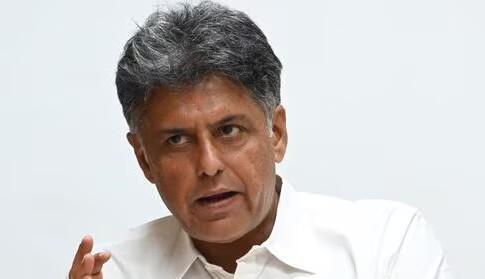
Against Constitution: Tewari on Bills to Remove Jailed PM, CMs
In a recent development, Union Minister Amit Shah presented three bills in Parliament aimed at removing Prime Ministers, Chief Ministers, and Ministers facing serious criminal charges. However, Congress MP Manish Tewari strongly opposed these bills, terming them as “against the basic structure of the Constitution.” According to Tewari, the potential for misuse of state instrumentalities under these bills is enormous.
The three bills presented by Shah, which include the Constitution (Amendment) Bill, 2023, the Constitution (Amendment) Bill, 2023 (2), and the Constitution (Amendment) Bill, 2023 (3), seek to remove Prime Ministers, Chief Ministers, and Ministers who are facing serious criminal charges. The bills propose that a Prime Minister, Chief Minister, or Minister can be removed from office if they are convicted of a serious offense, including corruption, and are sentenced to a minimum of five years in prison.
Tewari, a strong advocate for upholding the principles of the Constitution, expressed his concerns over the potential misuse of these bills. He stated that the Indian Constitution is based on the principle of “innocent until proven guilty,” which means that an individual is presumed innocent until they are proven guilty beyond reasonable doubt. According to Tewari, the proposed bills undermine this fundamental principle and create a potential for misuse of state instrumentalities.
Tewari also pointed out that the bills do not provide any clear guidelines or procedures for removal of Prime Ministers, Chief Ministers, or Ministers. He argued that the bills are vague and arbitrary, and could be used to target political opponents and individuals who are not accused of any serious crime. He also expressed concerns over the potential for abuse of power by the government, which could lead to the removal of opposition leaders and individuals who are critical of the government.
The Congress MP also raised questions over the constitutionality of the bills. He argued that the bills are beyond the scope of the Constitution and are an attempt to undermine the basic structure of the Constitution. He stated that the Constitution provides for the removal of Prime Ministers, Chief Ministers, and Ministers through impeachment proceedings, and that the bills are an attempt to bypass this process.
Tewari’s concerns were echoed by other opposition leaders who argued that the bills are an attempt to undermine the Constitution and the democratic process. They pointed out that the bills are vague and arbitrary, and could be used to target political opponents and individuals who are not accused of any serious crime.
The government, on the other hand, defended the bills, stating that they are necessary to ensure accountability and transparency in the government. They argued that the bills are aimed at preventing individuals who are accused of serious crimes from holding public office, and that they are necessary to maintain the trust of the people in the government.
However, the opposition parties remain skeptical about the government’s intentions. They argue that the bills are an attempt to undermine the Constitution and the democratic process, and that they are an attempt to target political opponents and individuals who are critical of the government.
In conclusion, the proposed bills to remove Prime Ministers, Chief Ministers, and Ministers facing serious criminal charges have sparked a heated debate in Parliament. While the government argues that the bills are necessary to ensure accountability and transparency in the government, the opposition parties remain skeptical about the government’s intentions. The bills have been criticized for being vague and arbitrary, and for undermining the basic structure of the Constitution.
As the debate continues, it is essential for the people to remain vigilant and to ensure that the government does not misuse its power to undermine the Constitution and the democratic process. The people must also hold their elected representatives accountable for their actions and ensure that they do not compromise on the principles of democracy and the Constitution.






